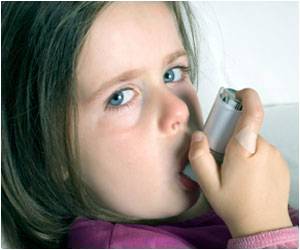
‘Babies born during fall are at higher risk of suffering from the atopic march. It is a chain of allergic reactions that start with skin problems during infancy and progress to food allergies, asthma, and hay fever in childhood.’
Read More..Tweet it Now
The research conducted at National Jewish Health reveals that babies born during fall may be at increased risk of atopic march.Read More..
"We looked at every child treated in our clinic, and those born in the fall were much more likely to experience all of the conditions associated with the atopic march," said Jessica Hui, MD, a pediatrician at National Jewish Health and lead author of the study. "Now, we are learning more about why that is, and we strongly believe it stems from the bacteria on the skin on how they affect the skin barrier."
The skin of children with eczema has high levels of harmful bacteria called staph aureus. This weakens the skin's ability to keep out allergens and pathogens.
The body sees food particles that penetrate the skin, rather than being digested, as foreign bodies. This triggers an immune response, produces antibodies, and causes the child to become allergic.
Researchers are exploring environmental and genetic factors that may contribute to weakened skin barrier in babies.
Advertisement
The findings will help explain why the babies born in the fall are at greater risk for the atopic march and will also help develop solutions to stop the condition
Advertisement
"We think if we can intervene at a very young age, even right after the baby's out of the womb, then potentially that's a way for us to try to stop the development of this atopic march," Dr. Hui said.
Source-Medindia










